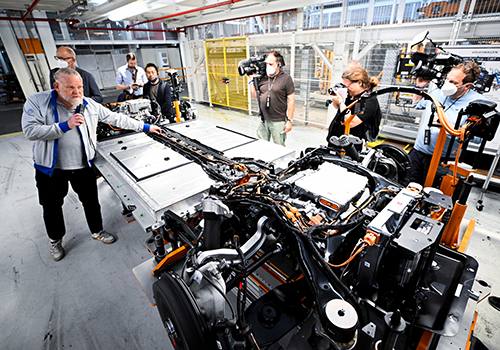Rethinking the Future of Zero-Emissions Mobility Beyond Electric Cars
Key Ideas
- Electric car sales growth in the EU has slowed down compared to previous years, leading to a shift in focus towards zero-emissions liquid fuels.
- Automaker lobby groups are showing more interest in synthetic fuels, with green hydrogen playing a significant role in achieving zero-emissions light mobility.
- Industry leaders like Oliver Blume from Volkswagen and Porsche acknowledge the need for a broader approach beyond solely electric vehicles.
- The future of sustainable mobility may involve a combination of electric cars and synthetic fuels derived from green hydrogen to achieve zero emissions.
The European market is experiencing a slowdown in the growth of battery electric vehicle (BEV) sales, prompting a reevaluation of the path to zero-emissions mobility. Automaker lobby groups, such as the European Automobile Manufacturers Association (ACEA), are now considering the potential of synthetic fuels as a complement or alternative to all-electric cars. Green hydrogen, in particular, is gaining attention as a key element in the transition to zero-emissions light mobility. Notable figures in the auto industry, including Oliver Blume, have indicated a shift in focus towards a more diversified approach that includes synthetic fuels alongside electric vehicles. This shift reflects a recognition that the exclusive reliance on BEVs may not be sufficient to achieve emission reduction targets. The future landscape of sustainable transportation could involve a combination of electric cars and synthetic fuels derived from green hydrogen, offering a more holistic approach to achieving zero emissions in the mobility sector.
